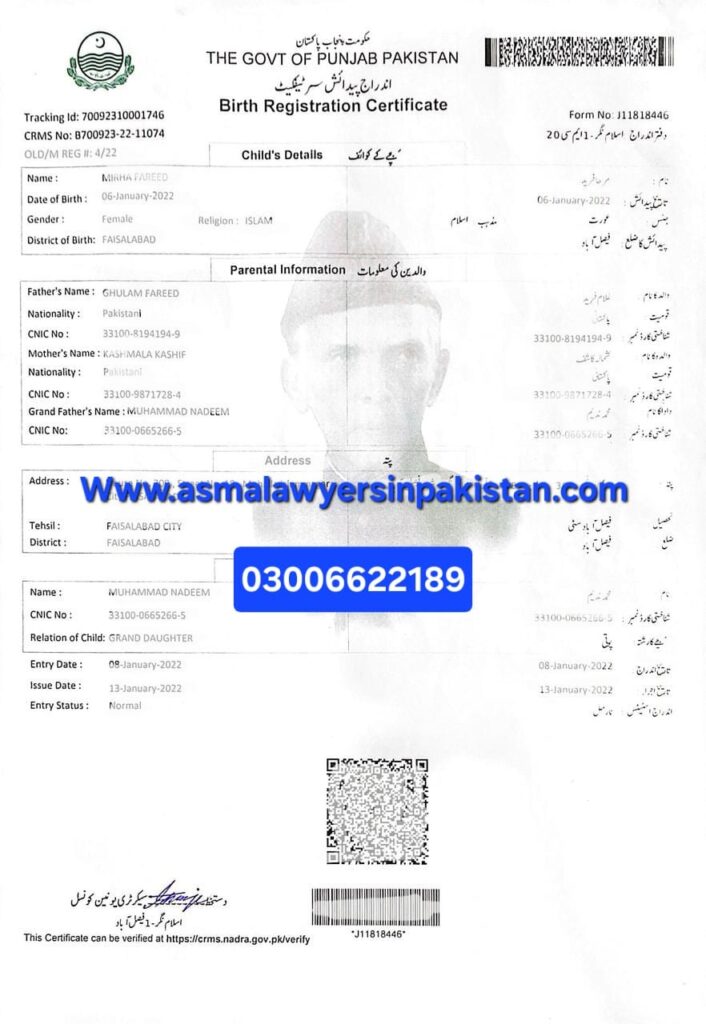489 F Pakistan penal Code PPC Blog D24
Going through a divorce is never easy—especially when children are involved. As a divorced parent, it’s important to understand your rights when it comes to seeing your child, gaining custody, and navigating travel permissions. Let’s break it down:
If your ex is preventing you from seeing your child, you do have legal options. The right to maintain a relationship with your child doesn’t disappear after divorce. These rights are known as visitation rights, and they are typically granted to the non-custodial parent—the parent the child doesn’t primarily live with.
If you’re being denied access without legal cause, you can file an application for visitation rights in your local family court. The court will consider what’s in the best interest of the child and may issue a visitation schedule. In some cases, supervised visitation may be ordered.
I am a 48-year-old Muslim Sunni. I suffer from multiple health conditions and do not have any children. I own several valuable properties in high-end areas. I want to ensure that I have full access to and control over my wealth during my lifetime—but also want my properties to be managed or donated to a charity of my choice after I pass away.
If you're being denied access without legal cause, you can file an application for visitation rights in your local family court. The court will consider what's in the best interest of the child and may issue a visitation schedule. In some cases, supervised visitation may be ordered.
You’re absolutely right to plan ahead—especially when it comes to managing property and estate matters under Islamic and civil law. In your case, there are clear steps you can take to make sure your wishes are honored:
Draft and Register a Will:
Under Islamic law, you are allowed to distribute up to one-third of your estate through a will (known as wasiyyah) to individuals or charitable causes outside your legal heirs. This is an essential tool to ensure your wealth is allocated according to your personal preferences.
Record Your Statement in Court:
You can also make a formal declaration or statement before a competent court during your lifetime. This helps eliminate any ambiguity and ensures your intentions are legally documented and respected after your passing.
Taking these steps will give you continued control over your assets while you're alive and ensure your legacy lives on in a meaningful way—whether through charitable giving or other personal causes.
For personalized legal assistance or to begin the process of drafting a will, feel free to contact us:
📞 +92 300 6622189
🌐 www.asmalawyersinpakistan.com
In Pakistan, there is no formal legal adoption under Islamic law; however, legal guardianship is granted under the Guardians and Wards Act, 1890. Individuals or families wishing to care for a minor must apply for legal guardianship through the Family Court.
To adopt a child from Pakistan for immigration to the USA or UK, the first legal step is to obtain a Guardianship Certificate from a Pakistani family court. This involves filing a guardianship petition under the Guardians and Wards Act. Once the certificate is granted, you may apply for the child's visa and meet the requirements of the receiving country.
I am an overseas Pakistani and want to adopt my brother's child — what is the procedure?
You need to file a guardianship petition in the Family Court of the child's jurisdiction. Essential documents such as the child’s Form-B, birth certificate, your NICOP, and proof of relationship are required.
After receiving guardianship, you must obtain court permission to take the minor abroad, which is granted upon a separate application with the family court. Immigration and embassy requirements of the destination country must also be fulfilled.
What are the child adoption laws in Pakistan?
Pakistan does not recognize adoption in the Western legal sense. Instead, the Guardians and Wards Act allows for the appointment of a legal guardian for the minor. The guardian assumes responsibility without severing the child’s legal ties to their biological parents.
It is a legal document issued by the Family Court confirming an individual’s legal authority and responsibility over a minor.
What is the Guardians and Wards Act of Pakistan?
This is the primary legislation governing the appointment of legal guardians for minors in Pakistan. It ensures the welfare of the child is the paramount consideration in all decisions.
How to submit surety for adoption in court?
The court may require a financial surety or affidavit to ensure the child's welfare. This is usually supported by property documents, bank statements, or guarantors.

How to get computerized birth certificate from union council in Pakistan?
How to get birth certificate online from Pakistan?
We provide service of documents, as subpoenas, writs, summons, warrants specially required to appear before court. We are a company who do so on behalf of our clients or international courts. we think quick, prepare everything, and gather complete knowledge to do so.
We respond as per Time required, and use various modes to do so.
Contact as asmalawassociates1@gmail.com or 00923006622189
